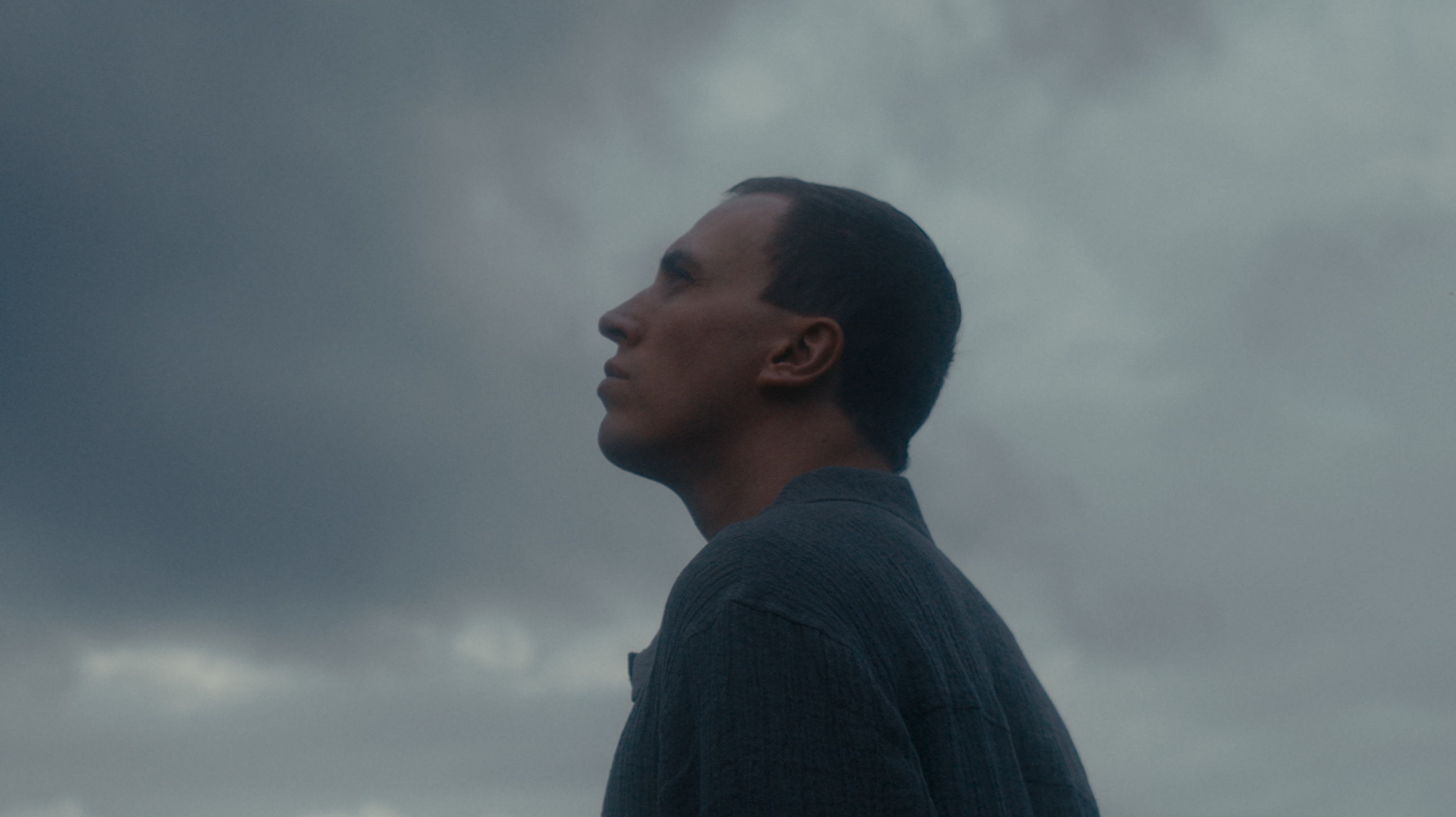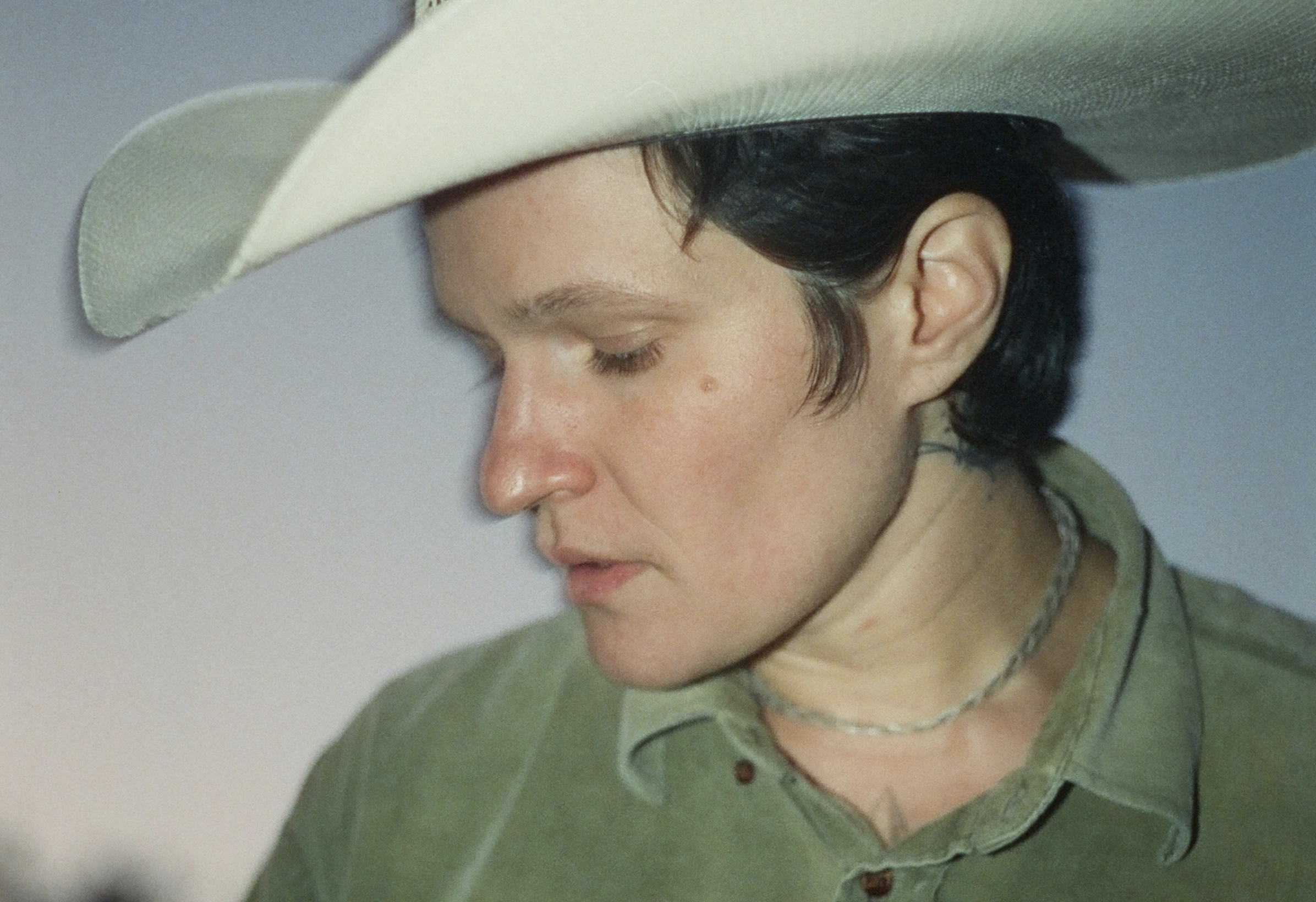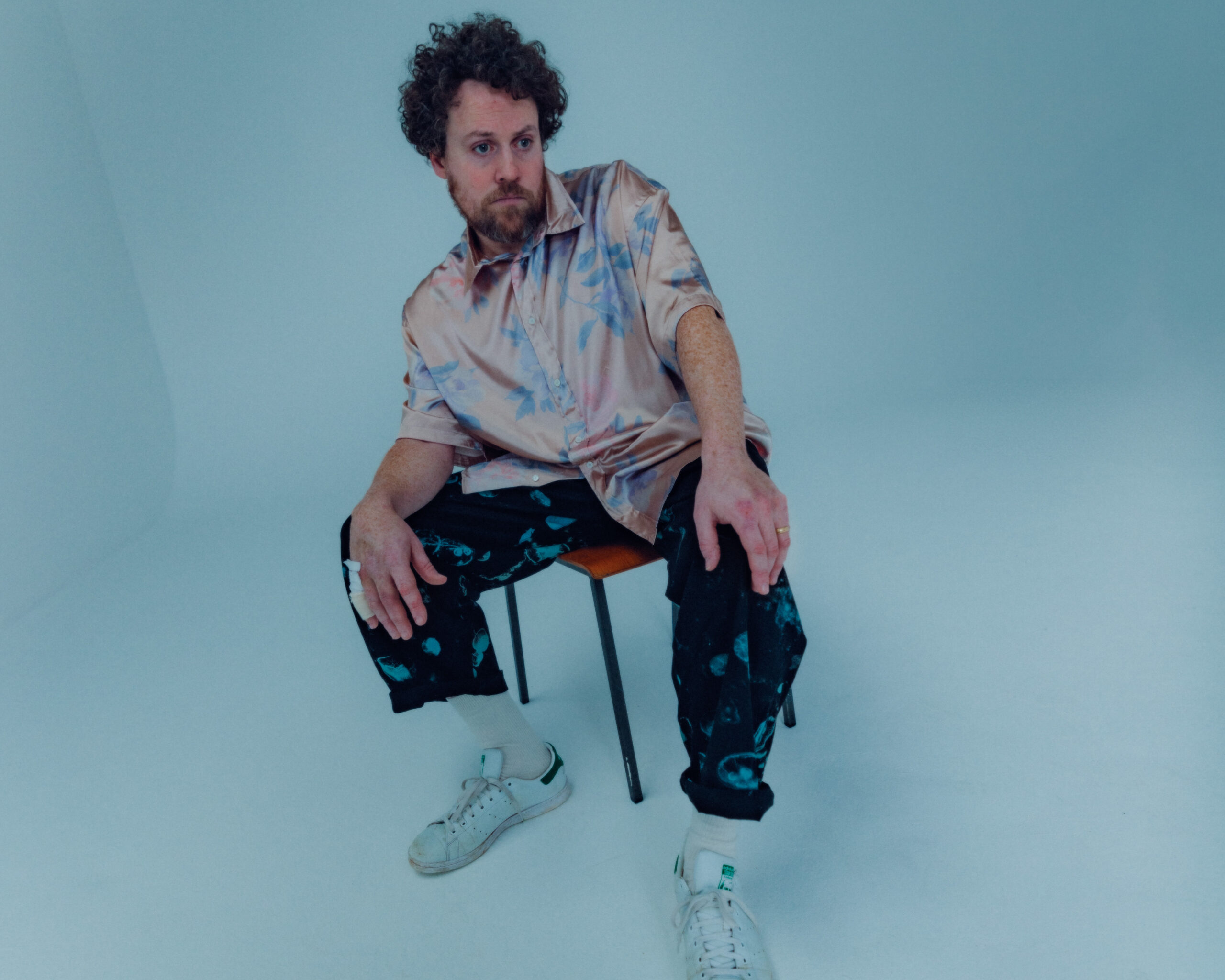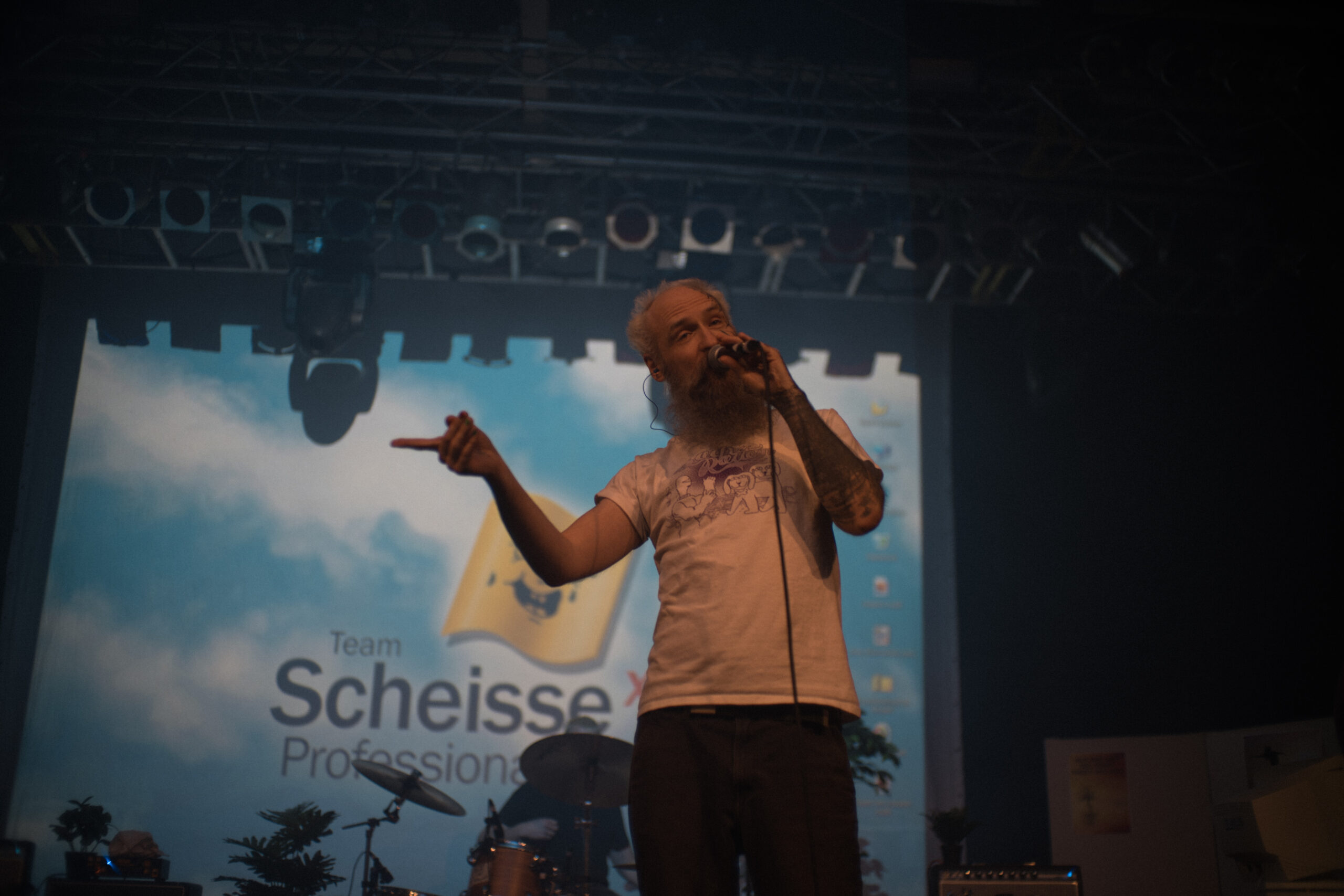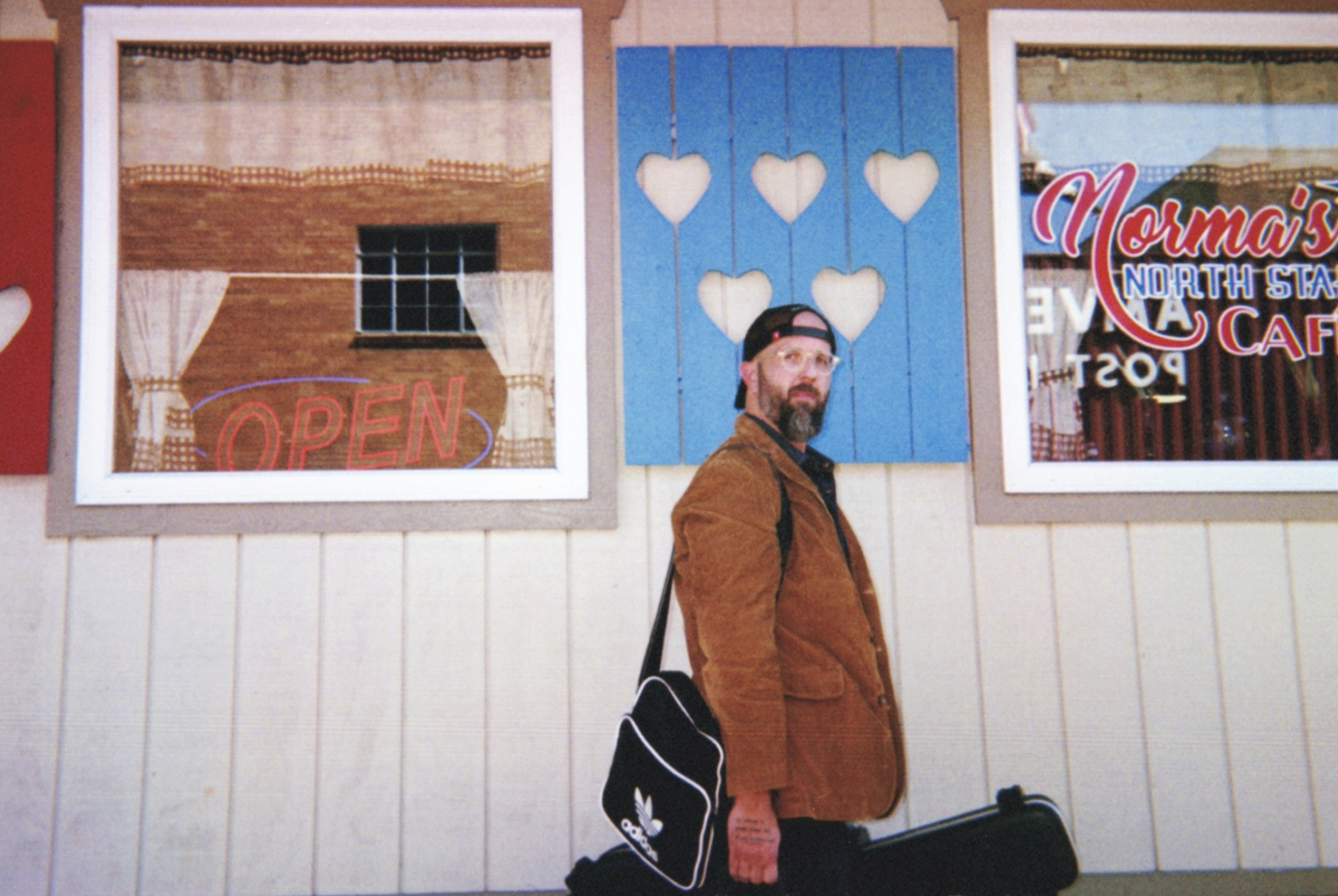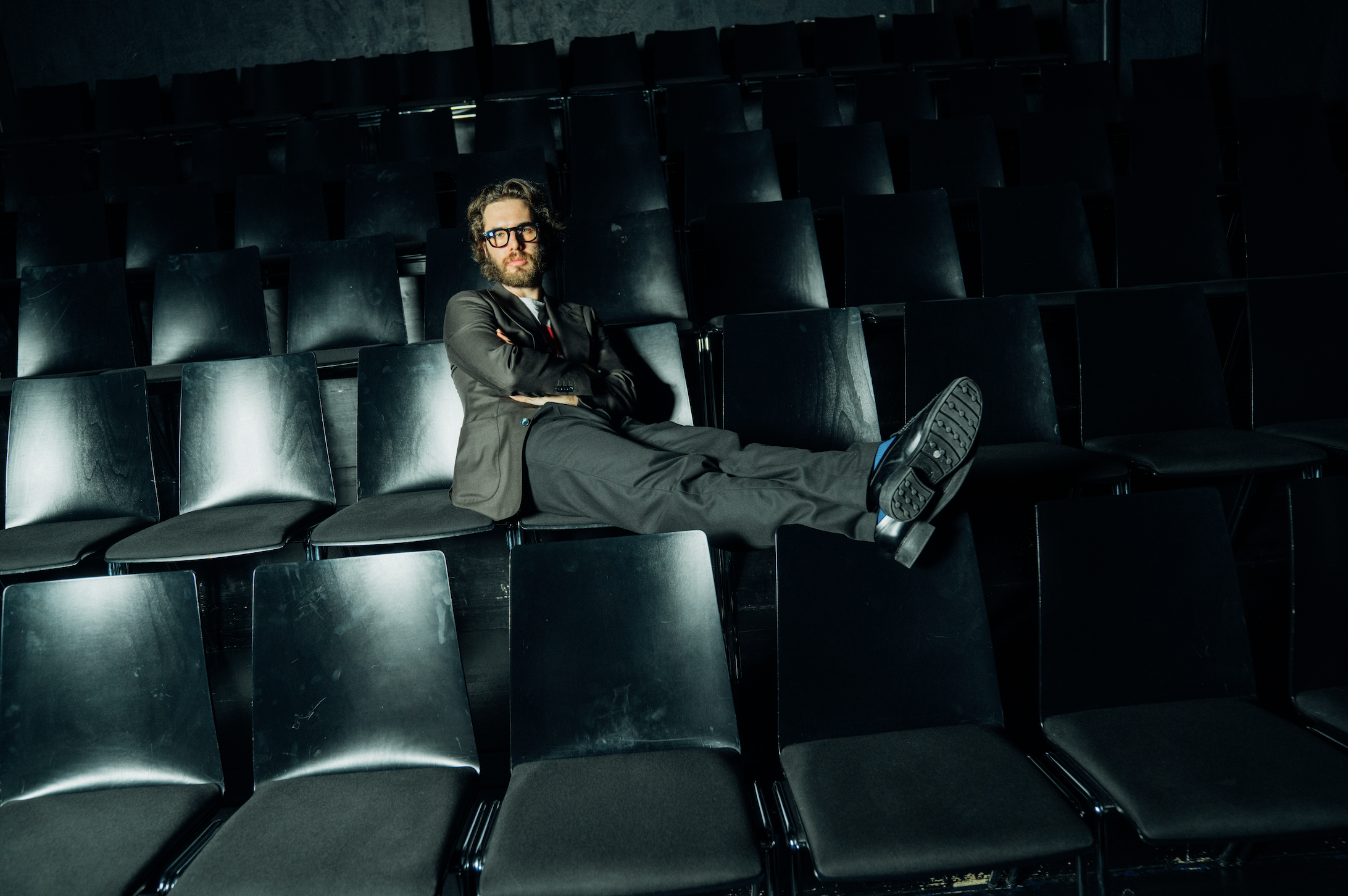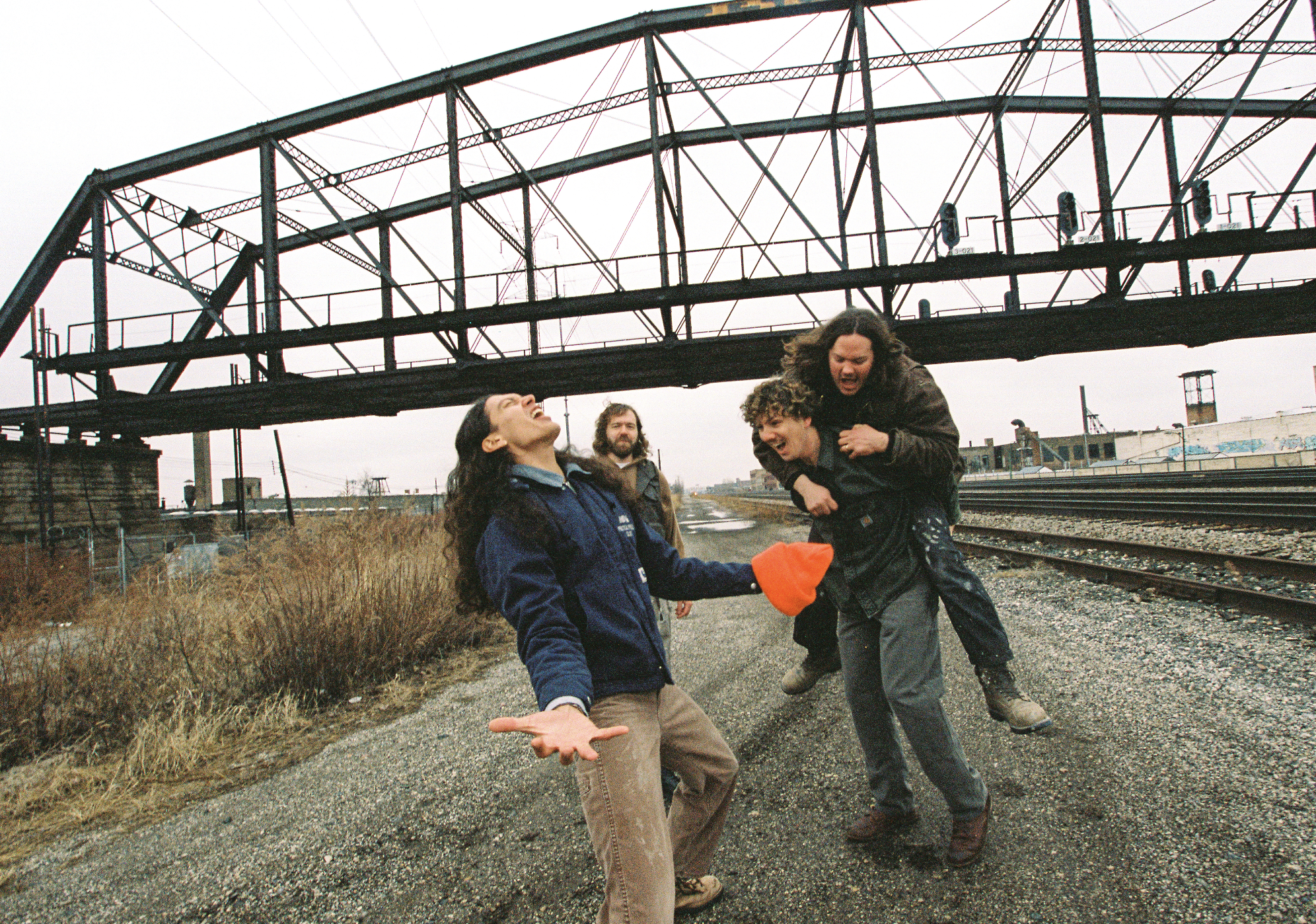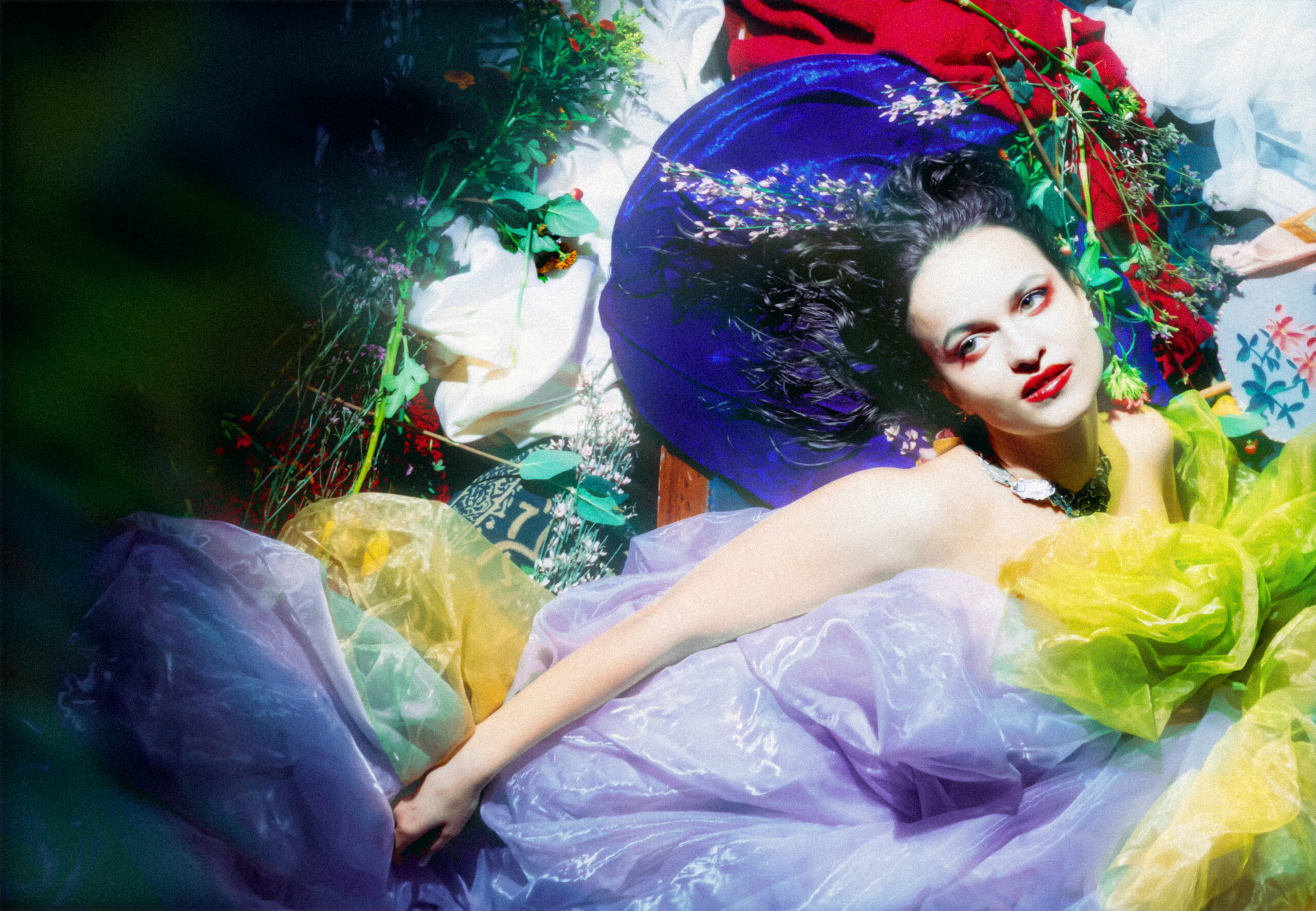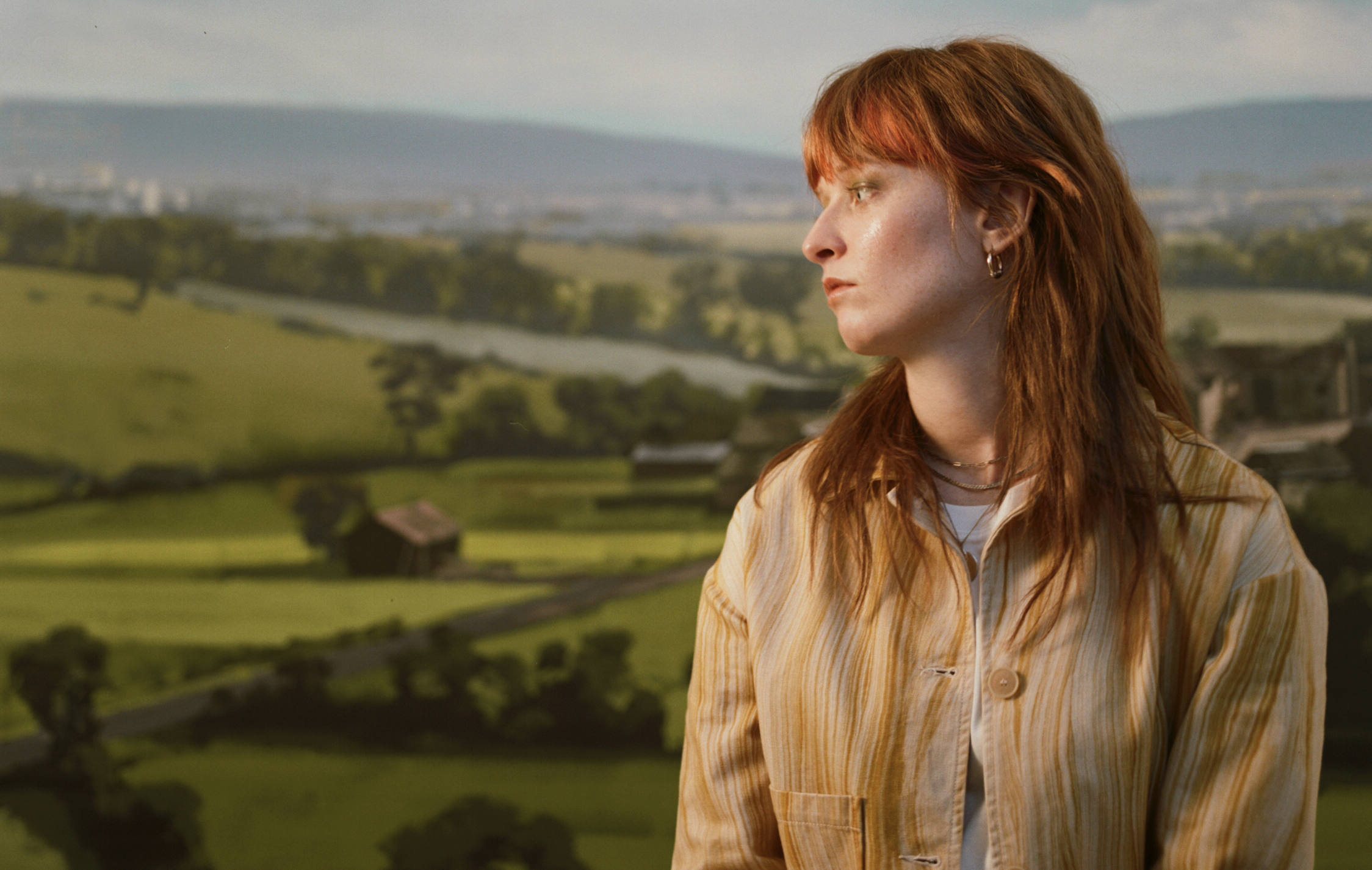Foto-© Karina Barberis
Orla Gartland tat es vielen Künstler:innen ihrer Generation gleich und schaffte es, sich mit der Hilfe von YouTube eine Hörerschaft aufzubauen, schon weit bevor sie ihre eigene Musik veröffentlichte. Doch nun erscheint am 20.08., nach einigen erfolgreichen EP’s, endlich ihr Debütalbum Woman On The Internet! Die gebürtige Irin singt unverblümt von ihren Unsicherheiten, Fehltritten und Ängsten und schafft es, trotz der Zeit, in der das Album entstanden ist, keinen Bezug auf die Einsamkeit des Lockdowns zu nehmen. Wir sprachen mit Orla darüber, warum sie ihre Musik unbedingt über ihr eigenes Label veröffentlichen will, über ihre Freundschaft mit der Sängerin dodie und darüber wie Orla ihre eigene Rolle als “woman on the internt” wahrnimmt.
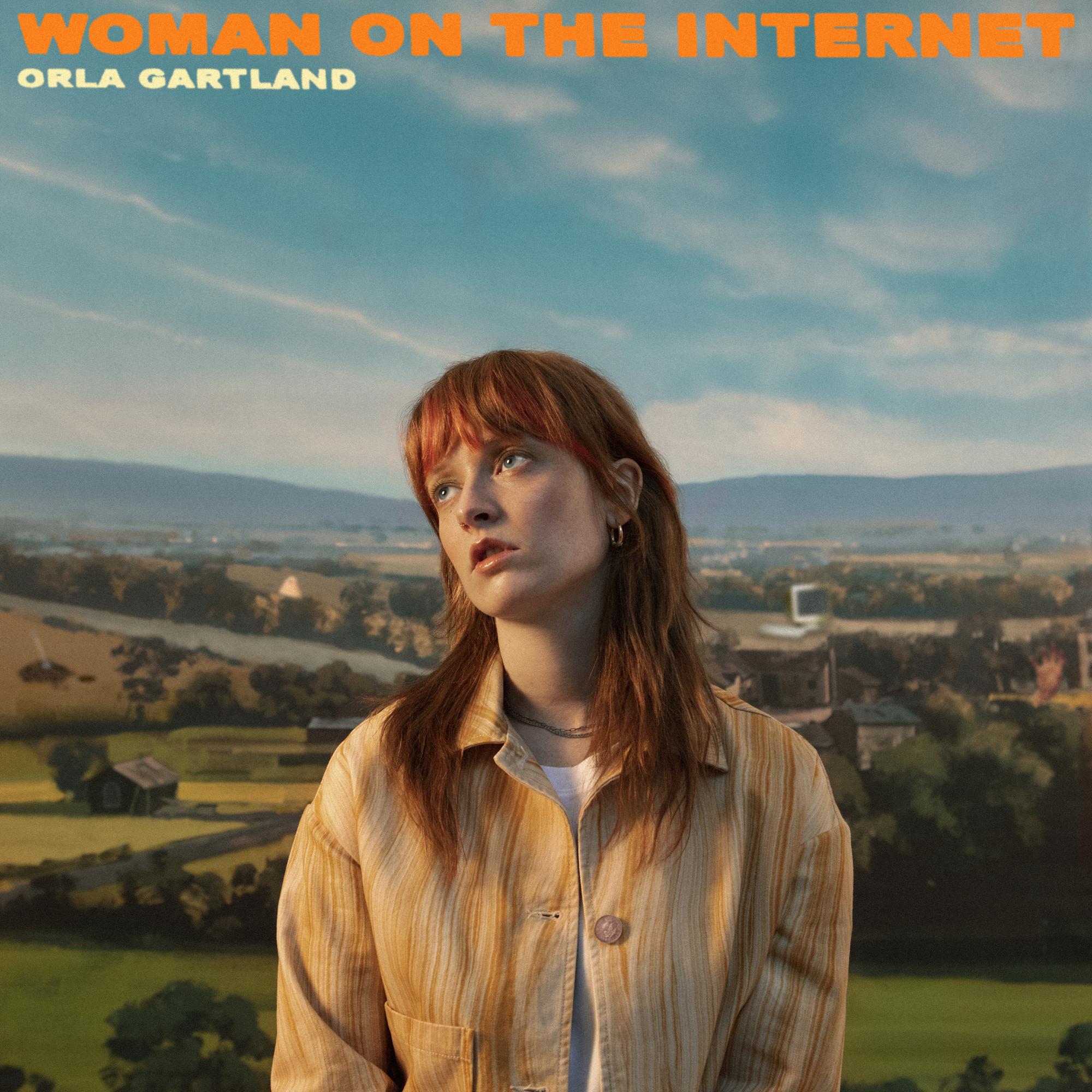 Hi Orla, how are you doing and how where the last few months for you?
Hi Orla, how are you doing and how where the last few months for you?
I’m good, thanks! Yeah it’s been a weird few months, I think for everyone. But it’s a weird time to try and release an album in a pandemic, it’s a trip! I‘m really missing gigs and I think I‘m feeling more strange this year, than last, because I spent so much of last year writing and that was gonna be my plan anyway. Last year was meant to be a quite solitary year for me, regardless. So that wasn’t that different, like the course of the year didn’t change as much as if I had just been ready to go out on a tour. I’m definitely feeling it more this year, but it’s fine. It’s a great day in London today and its been pretty nice the last couple of weeks, so that kind of helps, you know? (laughs)
Your debut album Woman On The Internet will be released in about two months. How excited are you and what can you tell us about the record?
I‘m so excited! What can I tell you? It’s got eleven songs, a couple of them are out already, I wrote it last year, but I feel very alleviated about the fact that it is not a lockdown album, it’s not a sad album about being stuck inside. I didn’t want that for my debut, even if that were the circumstances it was made under, I think its got a lot more energy and life than that. I wrote all of it last year and demoed it myself, I had a little studio down the road from my flat, so that part was very solitary, that was always gonna be like that. And then towards the end of the year, I went to a studio in Devon, which is like rural England, called Middle Farm. I brought my band down and that was like a few weeks of summer camp, we also hadn’t played together in a year, so that was so much like pent up energy to play together again. Those few weeks were so special! That was the highlight of the year! I‘m really glad that we did it that way! I was really bossy, about doing it in a certain way (laughs), like I really wanted one of those big white boards and everyone was like „That’s kinda wasteful, you could just make a list on your phone“, and I was like „No! I am ordering a white board, you can’t talk me out of it!“, (laughs). Because it’s been such a long build up for me, to get to that point and I think I was very heldened about doing it in a certain way and I think even with COVID, I managed to make it a good experience for me and everyone who was involved.
So, how did you get into music in the first place?
I really don’t know, I didn’t have really musical parents, they just had terrible taste (laughs). I think I actively rejected their taste, my dad just listened to Van Morrison, who is this old Irish guy, but he also liked stuff like Brandi Carlile aswell, he was into a couple of American female songwriters, that’s probably the only crossover in our tastes, but I think I had to find it myself. I played violin for years, like fiddle – proper Irish title (laughs). I started it when I was really young, like four or five and I think, that I thought that you held it like a guitar, I thought it was a ukulele (laughs). I was so upset when I started the lessons and they told me to put it under my chin, I was like “Nooo, this not what I thought it was gonna be” (laughs)
This is not what I signed up for!
Exactly! (Laughs) But we already bought it at that point, so I had to just do it for a couple of years and once I was twelve or thirteen, I started the guitar, because that was clearly what I thought the violin was in the beginning. And then, through growing up and being a teenager, I was, not massively quiet, but I struggled to express myself, like a lot of teenagers do and songwriting became a nice way for me, to put these feelings into words. I didn’t know what else to do with them, I couldn’t bring myself to speak to people in my life about how I was feeling, so it was a lot easier to sit in my room get them out that way. So I think I wrote songs more like a diary or more like a way of processing things, long before I wanted to do it as a job. At that point I probably didn’t even think about that you could do it as a job, that came a couple of years later.

The bio to your new album mentions a lot of strong female musicians, as influences for you, when you were growing up – like Avril Lavigne, Laura Marling, Joni Mitchell, Kate Bush, Fiona Apple or Regina Spektor – could you tell a bit, what influence they had on you and what they thought you for your own music and career?
Definitely! God, when you put them next to each other it’s a quite hectic list (laughs), some of them I can imagine being a good time at a dinner party and there are other ones where you’re just like “Oh my god, that would be chaos” (laughs). I mean Avril is like a very first love, I made my dad do a photo shoot with me, when I was six, where I had the tie she always wore (laughs). I think, very early on her spirit and her punky thing spoke to me, as a misunderstood seven year old (laughs). When I was growing up, I started listening to lyrics in songs, that was probably when I started being more drawn to Regina and Laura, like people who sing about real stuff, things that was a little more serious. So my taste was very serious when I was a moody teenager and then, in my early twenties, I kinda started circling back to the more “quirky” stuff, I hate that word, but I think that’s how I’d describe it, like Fiona Apple. I wanted to hear more characterful weirdness in songs and I was more into people who were taking that leaning a bit more left and were making really crazy music. But a lot of these people have a lot in common and if there is one specific thing, that they all have in common, then it’s that they just have so much personality in their music, that’s the essence of what I love about all of them. They’re so unapologetically themselves in their songs, that’s what I have always wanted.
You left your home Ireland at a very young age, to follow your dream. How was this looking back for you and would you do it like that again?
I would, yes! How old are you?
I’m 22!
Okay, so you are a bit younger than me, I don’t know if you find this, but I moved as I was 18 and that to me just felt so normal at that age. I felt like totally bulletproof and invincible (laughs), but now I’m way more timid to the world, moving countries is a lot more drastic to me now than it was then. I moved to London when I had zero dollars, I didn’t even think, I was just like “ I’ll figure it out when I get there”, and I just thought I was totally fearless and I kinda miss that. So, I would do it again, but I find it actually harder at this age, to make that drastic of a move. As you get older, you think a lot more about stuff like “What if I can’t pay rent”, but at that stage I just didn’t think at all, so I’m glad, I moved when I was that young, because I was too cocky to talk myself out of it. (laughs)
You already mentioned earlier, that your album isn’t a lockdown blues, even though it was created in 2020, did COVID still influence the process in some way?
Yeah definitely! It made it more solitary, there is a co-producer on the album, that is my friend Tom, and in a non COVID world, he would’ve been involved in the process a lot earlier. We would’ve written a lot of songs in a room together, but doing it this way meant that I had all the songs pretty much written by the time I got Tom involved, so that bit was a lot more solitary. I think having the extra time and lack of distractions, to focus on it was really good. I always feel almost guilty when I talk about anything of last year being good, because it was an absolute desaster on a global scale, but I think it’s important, to think of some of the good stuff that came from it and for me it was, that I love to take my time for songwriting and spending the whole day on one verse. I love that leveled detail and I think, had last year been filled with gigs and tours and party’s and basically life, it probably wouldn’t have been rewarded that much time to por over the details. That was the positive that came from it. And as I said at the beginning, I think that, when the band did get involved in the last stage, there was so much pent up performance in all of us, that I think it was just so nice. It made that so much more special, rather than have that three weeks squeezed between tours, we would’ve been in lot more practice though, we were a bit rusty by the time we came together (laughs). But the feeling and the release of it was so much more powerful, having not done it for a while. So, I think it did influence it, in a negative way it made it quite hard to write about life when life isn’t happening. So I was using a lot of ideas, that I had started pre-COVID, that I was just finishing then. I found it really hard to start things last year. There is one song, called Pretending, that is about being at a party and pretending to be someone you’re not and it almost felt like dis genuine to be writing about a party, I haven’t been at a party in months, I don’t even know what it felt like (laughs). I had to push my imagination, to make this things work and to make it sound effortless, that part was more of a challenge.
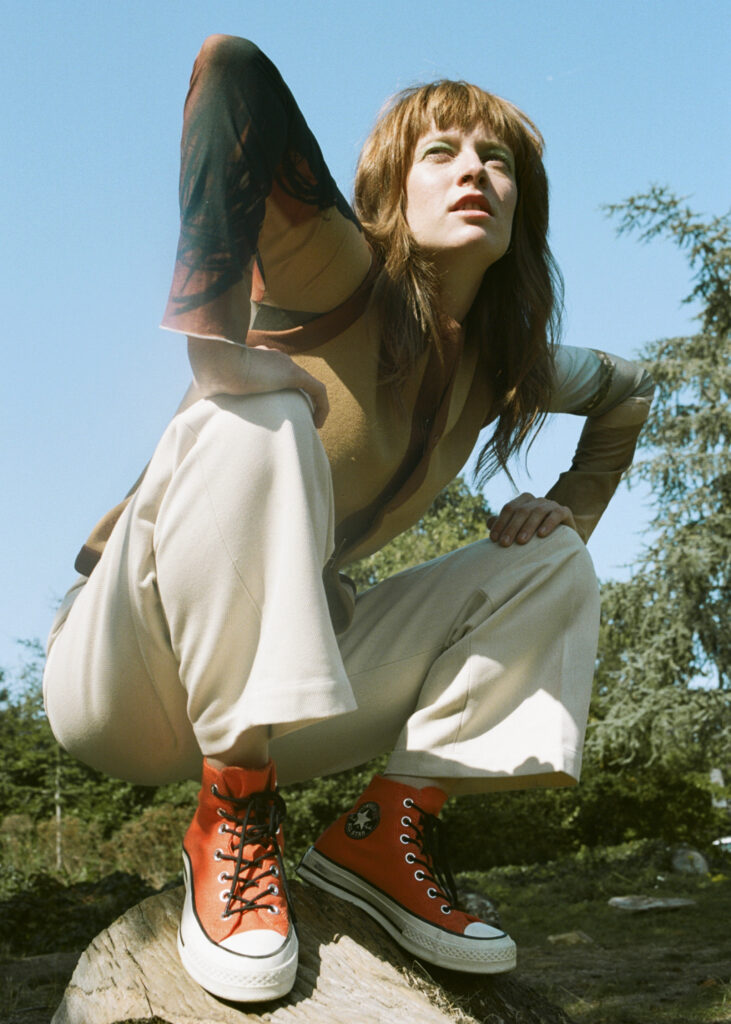 Your album is called Woman On The Internet, how does the internet and especially social media affect your life and maybe also your music?
Your album is called Woman On The Internet, how does the internet and especially social media affect your life and maybe also your music?
Great question! I really try to not let it affect my music, it’s something I thought about a lot lately, because I come from a YouTube background, which is very kind of a different musical culture, than let’s say TikTok. TikTok is something that I still try to understand, it’s a total mine field for me, I think it’s really powerful, what it can do for people. It is a complete sensory overload, I’ve never seen anything like it, its like an assault on your senses, because you scroll and it’s like; funny, someone’s crying, someone’s yelling, aww cute dog, someone’s cooking pasta, and it’s just so much. I think a lot of industries and people who promote themselves try to figure out how to use it and I think what it’s done for music is really good for some people. But it doesn’t really work for me, which is putting up loads and loads of content, song snippets and getting in cars, playing your song for your girlfriend or boyfriend and watching them react. It’s so click bait and I hate that. That is a game to play if you want to play it and I just am not for that, even if there’s some great reward to it, I just can’t bring myself to be that disingenuine on there. But I think certain kind of music does land really well on TikTok and I do see that it’s effecting people to write about certain things. It’s been a part of pop music for years, but even other genres are touched now, by the idea of making a song for TikTok, it’s very prevalent in the music industry, I see it a lot and I hate that idea, because it’s not gonna last. It’s the same why I don’t want to write about lockdown, because the songs are not going to age well, I also don’t want to write songs for TikTok, because in a couple of years there will be something else. I don’t want my songs to be “TikTok Songs” or “Spotify Playlist Songs”, all of this stuff is trendy and it’s hard to switch that off, because they are tools that we all need to use to promote ourselves, unfortunately it’s part of the job, but I really try to not let it affect my music. I’m comfortable with promoting the song, once it’s done, but the internet is not allowed to come in until the very last bit for me and I have to be quite strict about that with myself. But it’s not all bad, I think there’s been really good parts, I have a Patreon that I do, where I have this thing that I call “Secret Demo Club”, that I’ve done for four or five years. That feels like a total safe haven, the community on there is so much smaller, they’re people who really want to hear music from me and they give so much feedback. They’ve heard about half of this album already, I put up one demo a month, so there are 50 or 60 demos up there, that is so much music and it’s very hard for me to know which ones are good or which ones kind of connect. And having those people as a little “workshop feedback group” has been so valuable! It’s impossible to be objective about your own music, so that’s a part that’s been really positive for the album, because it feels a bit more pure and more human to recognize the same names. I’m very intend in that part of the internet not becoming like a shrine to me, I don’t want them to be telling me, that I’m great all the time, I actually want and welcome criticism from those people. I don’t welcome criticism everywhere, because it’s not always wanted, but those people care so much, so when they say that there is something about this chorus, that isn’t working, I do take it so seriously! Because I know that their heart is in the right place and they’re not just saying it to be trolling. I don’t know if you find this, but I think working with people remotely and doing this kind of stuff remotely, everyone at the moment is just a person on the internet. I have a person who’s helped me organize the vinyl production and all of this stuff, he’s a guy that me and my managers have been working with for a year, but we’ve never met him. He’s just a face on Zoom, he’s a lovely guy though, we speak to him every day, but to me he’s just this totally abstract Zoom guy. (laughs)
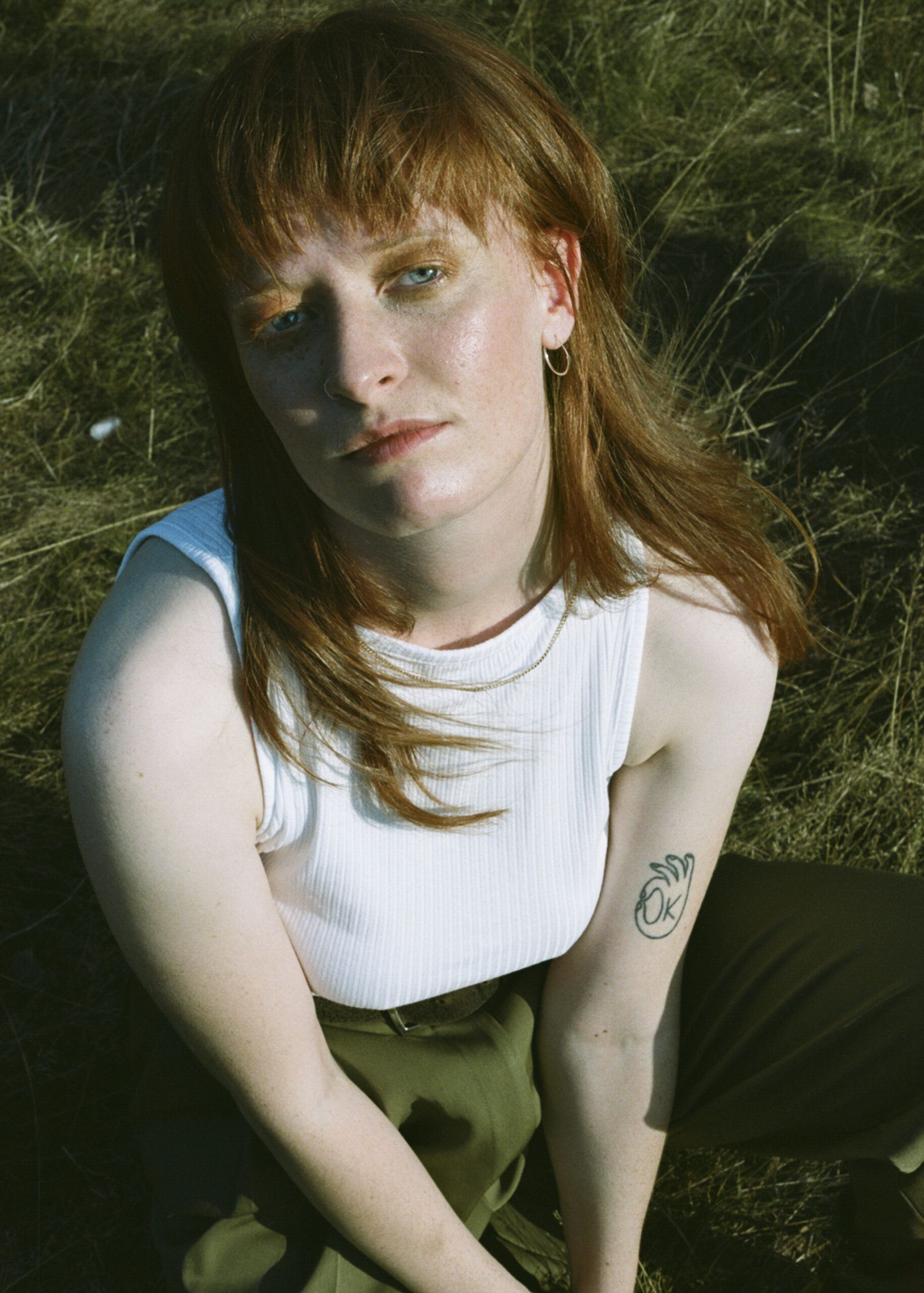 The album will be released on your own label New Friends, how did producing your music on your own influence the way you’re writing songs and how important is it to you, to keep all the control over your creative outcome?
The album will be released on your own label New Friends, how did producing your music on your own influence the way you’re writing songs and how important is it to you, to keep all the control over your creative outcome?
Oh, so important! I’m just a massive control freak, I would really struggle to let anyone else tell me what to do. I released my EP’s independently and I kinda always assumed, that when I want to release an album, I have to find a label, because album productions are so expensive. I think that’s probably why I put it off for so long, because I just love doing my own thing, I don’t want somebody to tell me what the singles have to be, I don’t want somebody to tell me what the music video has to be, but when someone else is paying for it, you have to give them that power. So beginning of last year, I was talking to my manager about it and I said that I wanted to make an album the same way as we did the EP’s. And even though it’s considerably more work for me and her, she was just totally up for it, so I took the Patreon money and payed for everything, it was kind of scary, but I got to do everything my way. It’s been so much more rewarding, even though it’s not out yet, I’m already proud of it! That really was my worst fear, especially for a debut, I mean who knows what happens in the future, but for a debut record I didn’t want anyone else to have ownership. I’m not afraid of hard work, when you do your own thing, every music video, every photo shoot, every piece of merch, every version of a song, you have to do yourself. I can’t just be like “Make me a music video!”, I have to assemble a team for it and pay for everything on my own, it’s a lot more practical and boring than you would think. But it already feels more rewarding, ‘cause it feels like there’s so much of me (laughs).
You mentioned that your album is about the chaos of your twenties – could you tell a bit what themes you cover there?
I just think the twenties are such crazy times, because I think when you’re like 15, 16 or 17, there’s so much in a year, the difference between yourself at 15 and 16 is huge. And then you get to your twenties and it slows down a little bit, but you’re still developing and you don’t really know at what point you become an adult, because you don’t just ever wake up and go “I am an adult now.”. It’s this really long process where you’re half a teenager, half an adult, you kind of moved out, but you sort of feel like 18. That’s just so bizarre to me, a lot of the songs are about identity and growing into that and to own it. That’s just part of the chaos. It’s also not all bad, I’m 26 now and I am so much happier and content in myself, than I was at 19. But I still have a way to go, I’m not in my thirties, where I’m super comfortable, shrugging anyone else off and I don’t care about anything (laughs). I haven’t arrived, I don’t even know if you ever arrive though. There is no sweet spot, there is no perfect age, my early twenties were so much more chaotic for me, than now, but there’s still plenty of chaos. It’s not a bad time, it’s actually great, but it’s totally bizarre, because half of your friends are sleeping on sofas and living their crazy life’s and the other half of your friends is getting married and having children. So you’re just like “What?! Which one am I? Should I do life in the “normal” way, or should I still be traveling and do whatever I want?”. So yeah, not a bad time, just a weird time (laughs).
One of our favorites on the record is the song More Like You, could you tell us what the story behind it is and what it is about?
Absolutely! More Like You is about a friend jealousy, so my best friend’s other best friend, it was someone that I hear about all the time, she sounds really perfect and great and then I met her and she was perfect and great! I think it’s about, when someone is a bit distant from you and it’s a lot easier to put them on a pedestal, you don’t really have access to them, so you’re building a character for them in your head, that is just absolute perfect. And then you meet them and they’re human, like everyone else, they have issues an flaws. But this was someone who I didn’t have access to, who was far away, she lives in America, so I just built this picture of her in my head, that she was the coolest, most interesting, most talented person ever and she’s also a musician, so that leads to some great comparisons, it’s very hard not to do that (laughs). I wanted to capture the feeling of the moment in Freaky Friday, when they swapped bodies, I didn’t want it to be super sad, I just wanted it to be more curious and I wanted to capture the feeling of what it would actually be like to swap with her. What would I do if I was in her body, what would I really feel? It’s interesting, because when you put a song out, obviously you do interviews and you say what the song is about, but I got so many messages like “It reminded me of my mom”, “It reminded me of my friend”, and all this scenarios that I didn’t think of as I wrote it, that to me is what music is, that is the best bit, when someone can see themselves in your thing, that’s so sick!

For More Like You, you worked with Tommy King, who also worked for HAIM and Vampire Weekend, is there anything you have learned from him during the process?
Yes! His involvement was super brief, I did a tour with dodie, where I played guitar in her band, we toured through the States at the end of 2019, a tour that we thought would be the first of many tours in 2020, that ended up being the last one that we did with her for so long. But we had a couple days in LA at the end, LA is a place to me, that is so surreal and I had the opportunity to have one session with Tommy King, who is in HAIMs band, he plays the keys, so he doesn’t produce all their music, but he’s in that gang. I was super starstruck by him, but not intimidated, he was such a nice guy and I had this chorus that I had been working on and it was so brief, because I had to fly home that evening. So I was writing with him, but I was also checking the time every two seconds (laughs). My favorite kind of collaboration is not someone writing a song for me, it’s someone facilitating me and giving feedback every now and then, that’s all I need, I don’t want someone to take over and I thought he was really good at that. Even though he’s done extremely well, he didn’t have an ego in that sense and it’s hard to find that, I think there’s a lot of people that you work with in music, that are so desperate to insert themselves into your thing.
I think the next questions goes in the same direction, you already mentioned. How do you feel about the traditional producer – artist relationship and why do you feel that it is important, that you are involved in the process heavily?
That’s a great question! I’m not a very technical person, I’m not very great with computers, I don’t think I lean into tech very well. But, you know those pictures of people in the studio and there’s this back of someone’s head and the guy is doing everything for you, I was doing a lot of sessions like that and I felt my project running away from me, because I have an idea, that I wanted to describe to the person, but I just didn’t know how to put it into words, it’s like a different language. I learned to demo my own songs, because I was so frustrated of not having the right words and I wanted to be able to execute my ideas. I still need some help, I made my album with another co producer, I finished it on my own to like 80% and then I involved Tom and he really helped to elevate it, but I don’t need someone who gets involved too early. I was surprised by how much I enjoyed it and I think not everyone has interest in production, some people just want to be performers, that is totally fine, but there’s still a value in knowing the language and being able to articulate what you mean, it’s so powerful. Having a grasp on that helps you to control, even if someone else is doing it for you.
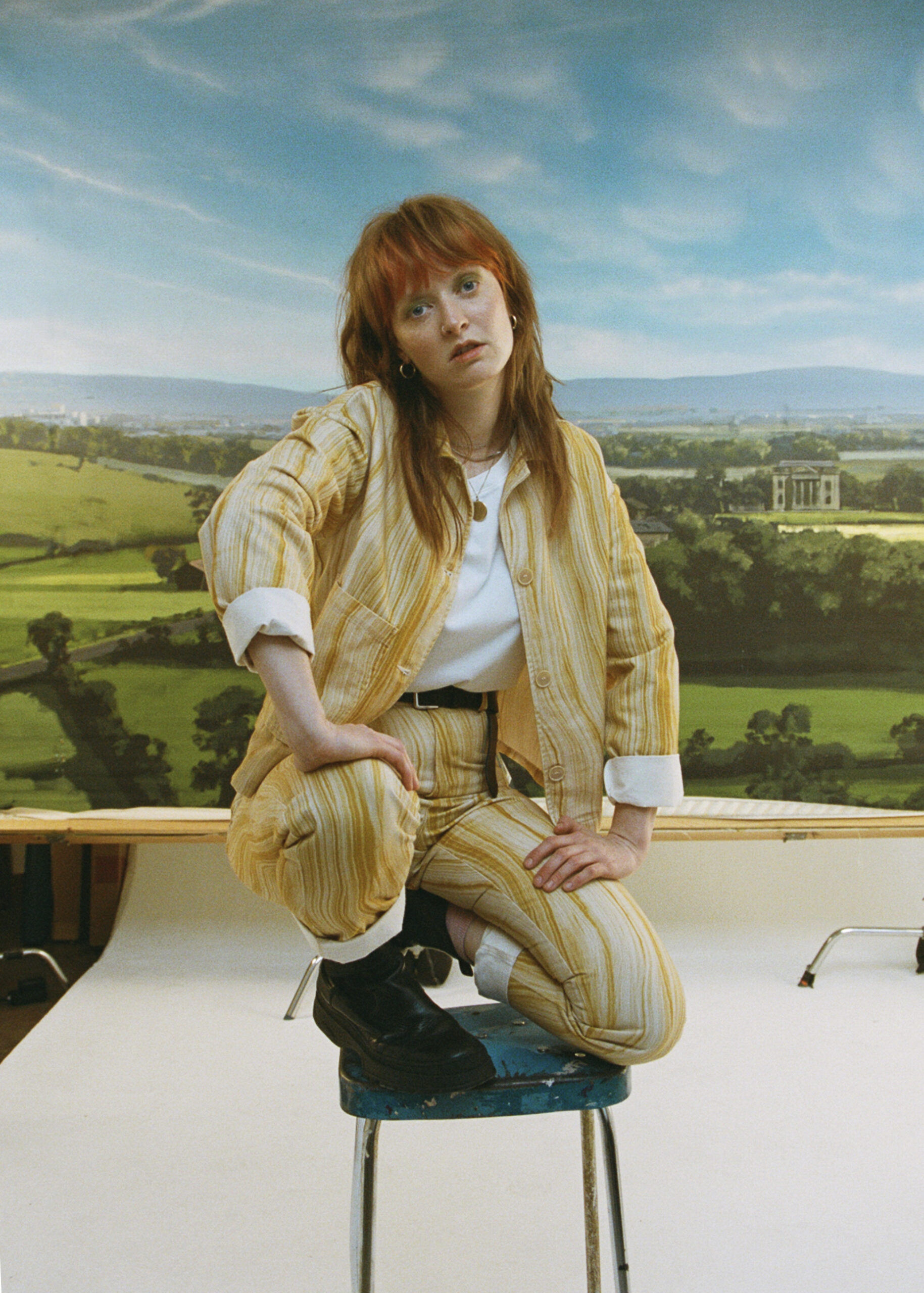 When coming to London you quickly connected to several musicians, one of them being dodie, for whom you also play in her band, she also just released her debut album, could you tell a bit about how you connected and if it’s by accident, that your records came out so shortly after each other and how you influenced each other’s work?
When coming to London you quickly connected to several musicians, one of them being dodie, for whom you also play in her band, she also just released her debut album, could you tell a bit about how you connected and if it’s by accident, that your records came out so shortly after each other and how you influenced each other’s work?
She’s one of my best friends, she lives right around the corner from me. We were just fans of each other I think, when I first moved to London we watched each other on YouTube and I did a show and she came that was the first time I met her in person. We have this really awkward photo, where we were both 18 or 19, it was one of those times where you just made silly faces (laughs). Dodie, even more than me, is super solitary about her process, so she doesn’t co-write, she has a producer, but she is so precious about her process. We are friends but we didn’t collaborate in our music at all and then I worked in a cereal café for a year, a couple of years ago, I was struggling from money and I worked there. I was kind of bored, so I asked them if could out on some shows in the café, because they had this really great space in London, where you could fit a 100 people in. At that time Dodie had never played a live show of her own and she was curious about whether it would translate in real life, because sometimes you can have a massive audience online and then you sell tickets and they’re not that interested in seeing you live. So, I wanted to put on shows in that cereal café and Dodie came and did her first headline shows in this café and it absolutely translated, she sold out every one of the four or five shows we did there. It was a really exciting time, where she started realizing that this is going to work. I was about to quit at the café and I had a moment, where I asked my friend Pete, to bring the sound system for the dodie shows, and Pete, who is a bass player, asked me if I wanted to be part of the band he was putting together for her, because it was me who introduced them. I’m so glad that I did it, they’ve given me so much space over the last year, to grow into that role and own it, it’s been absolutely amazing. I didn’t think I would enjoy it as much as I have, ‘cause at that point I thought I needed to be up front, but that couldn’t be farther from the truth, it’s actually so nice to be part of someone else’s thing. The whole dodie team is so respectful for my project aswell! It’s been really nice to have each other to kinda lean on and I’ve seen her have days like this, where you do lots of interviews and deal with all this stuff, that’s so inspiring!
What are your further plans for this year, after releasing the album?
Well, there’s gonna be some festivals, they’re getting cancelled, but there’s one we’re gonna do. Which is called Latitude. That will be really good, that’s the one that has this trial status. We’re also doing a live stream show in august, which will be quite fun and another reason to get the band together. Also hopefully the dodie Tour in september, which kind of looks like it will go ahead, lets see (laughs). And then I’ve got my own tour in October, just around the UK, after that I’m planning a European round for next year! Pending COVID, pending Brexit! Everything is against me, but we’ll make it work!


